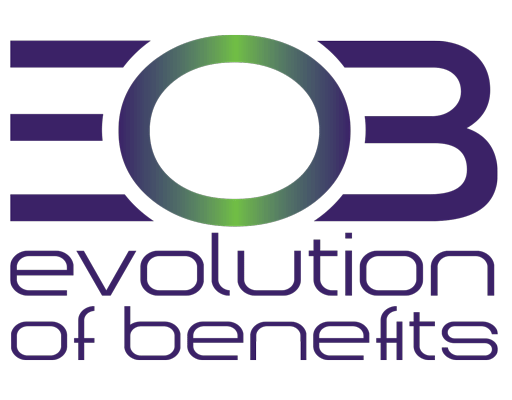Prioritize Your Sleep, Properly Cleaning Your Earbuds + More – Live Well, Work Well

Making Every Bite Count
The foods and beverages you consume have a significant impact on your health. In fact, 60% of adults have one or more diet-related chronic diseases.
The newly released Dietary Guidelines for Americans (2020-2025) offers science-based nutrition advice to develop healthy eating habits and reduce chronic disease risk. For the first time, this edition provides recommendations by life stage, from birth through older adulthood.

Prioritize Your Sleep
Sleep is just as important as nutrition and exercise to help you function at your best. But when you’re juggling work, kids and everyday life, a good night’s sleep may seem unattainable. In fact, 35% of people feel they don’t get enough sleep.

Adults need seven to nine hours of quality sleep each night. In honor of World Sleep Day on March 19, consider the following tips to prioritize your sleep:
Properly Cleaning Your Earbuds
Listen up! Earbud use can lead to health issues such as excessive earwax, ear pain, ringing in the ears or infections. Dirt, debris and sweat can build up over time, so it’s important to clean earbuds after each use. Cleaning can also maintain sound quality and extend the life of your earbuds.
View and download the latest Live Well, Work Well newsletter
Posted on February 28, 2021 by Evolution of Benefits
Five Ways to Start Your Year Off Right + More – Live Well, Work Well

Five Ways to Start Your Year Off Right!
2020 has likely given you time to reflect and think about what you’d like to change about your lifestyle. This is a good time to make positive life changes and strive for an overall healthier self. Consider the following five tips to start the new year off right:
- Check in on your mental health. Mental health is just as important as physical health in building a healthy lifestyle. Reach out to a professional if you need help.
- Be social. Isolating during the COVID-19 pandemic doesn’t have to mean loneliness. Reconnect with others virtually or while practicing social distancing.
- Get regular checkups. Stay up to date on your annual physicals and necessary health tests. Screenings can help identify health issues to be addressed.
- Drink more water. Consuming sugary drinks, like juice or soda, can cause liver damage, premature aging and anxiety. Avoid excessive alcohol consumption as well.
- Count nutrients, not calories. Focus on improving the overall quality of your diet and not getting hung up on calories. Achieve this by adding more fiber, protein and probiotics to your diet.
Kick Stress Eating to the Curb
As the COVID-19 pandemic and winter season continue, you may be fighting the urge to eat your feelings. Although stress eating may be soothing at first, you likely won’t feel better in the end. Consuming excess calories in one sitting can cause fatigue, bloating, stomach discomfort and weight gain over time. Consider the following ways to cope with stress eating:
Don’t Forget, It’s National Blood Donor Month
Winter is one of the most difficult times of the year to collect enough blood products and donations to meet patient needs. That’s why National Blood Donor Month is celebrated every January. This month, resolve to be a blood donor and consider the following health benefits of donating blood regularly:
View and download the latest Live Well, Work Well newsletter
Posted on January 2, 2021 by Evolution of Benefits
Live Well Work Well Newsletter – Celebrating Holidays Safely During the COVID-19 Pandemic

‘Tis the season for holiday planning. Yet, gatherings of families and friends, crowded parties and travel may put Americans at an increased risk for COVID-19. The Centers for Disease Control and Prevention (CDC) recommends that you carefully consider the spread risk of in-person holiday celebrations.
View and download the latest Live Well, Work Well newsletter
Posted on November 30, 2020 by Evolution of Benefits
Live Well Work Well Newsletter – Flu Season is here

The arrival of the fall and winter months signals many things, including flu season. According to the Centers for Disease Control and Prevention (CDC), flu activity peaks between December and February. It’s likely that flu viruses and the virus that causes COVID-19 will both spread this fall and winter.
Many symptoms of the common cold, the flu and COVID-19 are similar, so learn how to differentiate between them on the next page.
View and download the latest Live Well, Work Well newsletter
Posted on October 31, 2020 by Evolution of Benefits
Live Well Work Well Newsletter – October 2020

An unintentional phenomenon is on the rise—pandemic fatigue. People are tired of staying at home. People want to be the social creatures they inherently are. People want their “normal” back.
This collective fatigue is making some people—consciously or unconsciously—disregard pandemic guidance such as social distancing and mask wearing. Others may be reaching a mental health breaking point.
View and download the October 2020 Live Well, Work Well newsletter
Posted on October 1, 2020 by Evolution of Benefits
Live Well Work Well Newsletter – September 2020

Choosing effective hand sanitizer
TIP: Try to steer clear of hand sanitizers that claim to help prevent COVID-19, as that hasn’t been proven yet.
Read more:
View and download the September 2020 Live Well, Work Well newsletter
Posted on September 17, 2020 by Evolution of Benefits
Live Well, Work Well – August 2020

TOPICS
Sorting Out Coronavirus Fact From Fiction
Summer Sun Safety Tips
Probiotics and You
Click here or the image below to download the August 2020 Live Well, Work Well Newsletter

Posted on August 1, 2020 by Evolution of Benefits
Live Well Work Well – June 2020

Why cleaning your home can boost overall well-being
View and download the June 2020 Live Well, Work Well newsletter
Posted on May 31, 2020 by Evolution of Benefits
Live Well, Work Well – May 2020

Celebrate World No Tobacco Day by Learning About Smoking Cessation
Sugar Substitutes and You
Combatting the Loneliness Epidemic at Work
Click here or the image below to download the May 2020 Live Well, Work Well Newsletter

Posted on May 1, 2020 by Evolution of Benefits
April – Live Well, Work Well

Laugher may be a key in fighting workplace stress. The benefits of humor extend beyond your personal life – they can help you achieve in the workplace.
Here are some things to consider about humor in the workplace.

View and download the April “Live Well, Work Well” newsletter
Posted on April 11, 2020 by Evolution of Benefits
Client and Employee Resources
![]() The more your employees understand your benefit plans the more they become educated, empowered consumers. The programs you provide will also gain an enhanced value.
The more your employees understand your benefit plans the more they become educated, empowered consumers. The programs you provide will also gain an enhanced value.
As your strategic partners in employee benefits, we can provide multiple avenues of ongoing support, including:
- Employee Meetings (English and Spanish)
- Webcasts
- Payroll Stuffers
- Poster Campaigns
- Newsletters
Recent Posts
- HR Compliance Overview – Compliance Considerations for Unlimited PTO Policies (April) April 2, 2025
- Live Well, Work Well – Allergy-proof Your Spring 🤧🌷 April 2, 2025
- Benefits Buzz – Class-action Lawsuits Target Health Plan Tobacco Surcharges (April) April 2, 2025
- HR Brief – Executive Order Directs Federal Agencies to Improve Health Care Price Transparency (April) April 2, 2025
- EEOC and DOJ Issue Guidance on DEI-related Discrimination📌 (March) March 31, 2025
- ⛔IRA Changes to Medicare Part D May Impact Employer Plans⛔ (March) March 31, 2025
- ⚠️Report Finds 1 in 4 Workers Unaware of Mental Health Benefits⚠️(March) March 31, 2025
- 💫Staying Educated on Mental Health Benefits💫 (March) March 31, 2025
- ❗Employers Should Start Preparing for 2025 RxDC Reporting❗ (March) March 24, 2025
- 💛 Celebrating International Happiness Day reminds us of the importance of joy and positivity in our lives. As we observe this special day, let’s focus on spreading kindness and creating environments that foster happiness and well-being. By prioritizing mental health and emotional wellness, we contribute to a more harmonious world. Let us all take a moment to appreciate the simple joys that life offers and share smiles with those around us. March 20, 2025
Newsletter and Article Categories
E-Verify is a web-based system that allows enrolled employers to confirm the eligibility of their employees to work in the United States. Click the image below to begin.





















